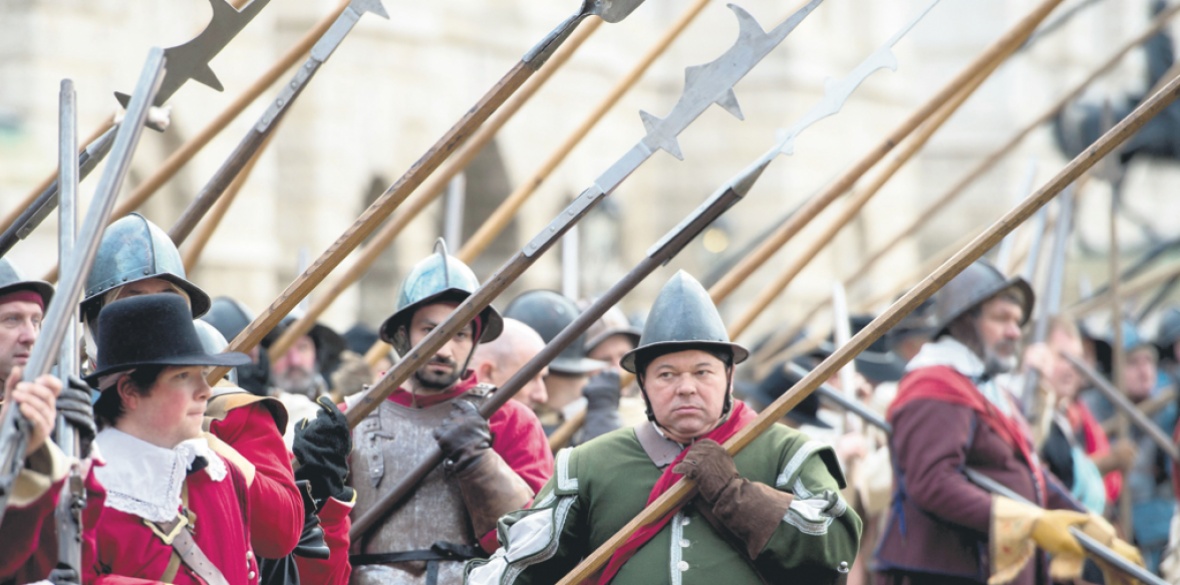This is the last article you can read this month
You can read more article this month
You can read more articles this month
Sorry your limit is up for this month
Reset on:
Please help support the Morning Star by subscribing here
JANUARY 30 marks the 370th anniversary of the beginning of modern parliamentary democracy in Britain. On that day King Charles I lost his head in Whitehall and a government under Oliver Cromwell and then his son Richard ran things until 1660 when the monarchy was restored. It is of course still with us.
One might think that the birth of what was in effect the first parliamentary system anywhere in the world would warrant some degree of commemoration and indeed celebration. It will not of course. The 350th anniversary in 1999 did see some events and exhibitions which in the main focused on what a terrible thing it was that the forces of the New Model Army and the new Commonwealth had had the temerity to actually execute a monarch.
So January 30 is not, as it should be, a national holiday. The current Prince Charles, who may yet become King Charles III, will maintain an official silence, since 370 years on the royal family have still not come to terms with what happened on that January day in 1649.
The parliamentary war against royalist forces was a prolonged one with deaths and destruction. While battles are commemorated the efforts by the New Model Army to get rid of the structures of royalist society remain for the most part unremarked officially.
Many large churches which date back to the Civil War period or before were stripped of valuable objects and sometimes partially destroyed by parliamentary forces. If one visits these buildings you will find little or no recognition of what took place. Again it appears that 370 years on it remains too difficult to deal with.
In Peterborough Cathedral, a magnificent edifice which still stands, and one of the symbols of the power of the old order nearest to Cromwell’s birthplace of Huntingdon, some parts of the building were destroyed and some material removed. If you check the records for what took place there between 1649-1660 there is hardly any recognition of it, often just a space until record keeping started again with the Restoration.
Of course the parliamentary forces had agonised over whether they had the authority to execute King Charles I. After all with the divine right of kings he claimed to derive his authority from God, and Cromwell and other parliamentary leaders were deeply religious men, albeit of a different genre altogether from the royalist forces.
So when King Charles I mounted the scaffold 370 years ago this was a world changing event as much as the French Revolution 140 years later. 1789 is widely marked in France (which of course does not have a monarchy) again underlining the interesting silence in Britain about a fairly similar event.
The events of 1649 are remembered for very different reasons in Ireland where parliamentary forces engaged in bloody warfare. Meanwhile however they remain an embarrassment to those, many, who claim that Britain has a history of peaceful and gradual change quite unlike other countries.
January 30 1649 underlines that was not the case and was the origin of a long-running, if often downplayed, difference between those who eventually became the Tories, who were royalists, and those who were not who became Whigs and then Liberals. The Liberals of course did not defend the execution but they certainly did back Cromwell’s Commonwealth.
The degree of official amnesia about January 30 1649 can be understood by the fact that Charles II dated his reign not from 1660 but 1649. Meanwhile Cromwell, who died in 1658, was exhumed in 1661 and “executed.”
Keith Flett is a socialist historian.









